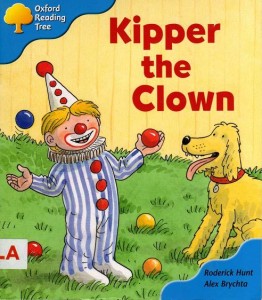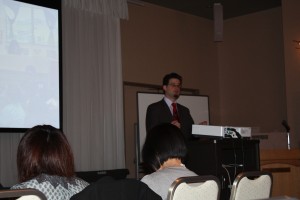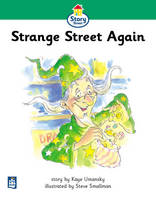curriculum EFL kids language courses Language learning online resources reviews school management self-study smart.fm technology vocabulary
by sendaiben
10 comments
The Word Engine
I think Koichi at Tofugu sums it up much better than I could, but I was very disappointed to hear the news that smart.fm closed down at the end of March (in order to renege on their pledge to remain a free site).
We’ve now moved all our students onto The Word Engine, an alternative paid site with a lot of nifty features. They have a reasonable sub-2000 yen price point for yearly subscriptions.
What sold it for me was the solid research foundation, the pre-test (V-check) that allows students to skip words they already know, and the teacher management system (V-admin) that makes it easy to keep track of large numbers of students and see how (and how much!) they are doing.
The Word Engine is an online SRS (spaced repetition system) that approaches vocabulary learning based on time boxes.
Signing up for an account is painless and takes less than a minute. Users then take a V-check test, which determines roughly how many words they already know. This is very important, as it allows students to skip items they likely know already and start right away on meaningful practice (this was a big problem with smart.fm, as it forced students to either guess at their level or start from the beginning). Payment is also easy, either online or by ordering access cards directly from Lexxica. Teachers can track their students via a free V-admin account, that shows student progress alongside the total amount of time they have spent studying online. It’s a great tool, as it allows teachers to sort by different variables.
After a few weeks, I really like the system. By far the best part is that practice is pretty much effortless. There is no penalty for getting items wrong, unlike in smart.fm, where students occasionally got really frustrated at being unable to ‘clear’ items. In the Word Engine, there is no downside for getting items wrong: they are just quietly moved back into the first box. Practice is also quick, with each session taking only a couple of minutes at the most.
While I would like to see more visuals and example sentences (things I thought smart.fm did well), these are minor issues.
So far we have over 50 elementary (higher grades), junior high, senior high, university, and adult students on the system. Feedback from the students so far is pretty good and most students are keeping to their 30 minutes a week targets (our best student has completed 22 hours of study in just over a month, and the worst just under 10 minutes, but most students are around the 2-3 hour mark).
If anyone else is using the Word Engine, I’d be really interested to hear how you are finding it.
business curriculum EFL eikaiwa expectations kids language courses Language learning school management teaching
by sendaiben
3 comments
Choice in the classroom
(I’d like to take a short break from earthquake introspection today)
Choice in the classroom
I had a great teaching experience today. It’s so simple that it’s probably not worth writing about, except that it made a big impression on me so there is a slight chance it will also prove useful to others. I was teaching one of our ‘advanced’ classes, made up of promising students that we select and recruit from our general student population (advanced classes are invitation only). This particular class has four girls in it, three junior high school second years and one third year. They’re a great bunch.
We just finished a textbook (Listening Starter 2, published by Compass), and had to decide what to use next. I had something I want to use, but without really having planned to, I pulled out three possible options and introduced each one, then asked the students what they thought. We ended up having a short, to the point, focused discussion about which textbook they wanted to do next, and why.
It wasn’t the one I had chosen.
This is fairly basic stuff. Give the students choice, make them responsible for their learning, give them more autonomy, etc. The thing is, I clearly wasn’t doing it as much as I could have. My students today showed me that they are mature and responsible enough to make these kinds of choices for themselves, and by allowing them to make that choice I maybe managed to convey to them how much I respect and like them. I think I ended up learning the bigger lesson.
It was a great end to a very long day of teaching.
conference curriculum EFL eikaiwa expectations kids Language learning Oxford Reading Tree presentations readers Reading teaching theory Uncategorized
by sendaiben
2 comments
Oxford Teaching Workshop in Niigata (March 12th)
I’ll be presenting again as part of the Oxford Teaching Workshop 2011. It’ll be taking place in Niigata, at the Coop City Hanazono, on Saturday March 12th.
The lineup is as follows:
| Saturday, March 12, 2011 | |
| 10:00-10:30 | Registration |
| 10:30-11:20 | Reading in Class: Opening the Door to an English World Ben Shearon |
| 11:40-12:30 | Teaching Ideas to Add Variety and Spice to your Lessons Ritsuko Nakata |
| 12:30-13:30 | Lunch |
| 13:30-14:20 | What you need to know for Shogakko Eigo Katsudo! Setsuko Toyama |
| 15:00 | Doors Close |
I’ll be talking mainly about using the Oxford Reading Tree and other story books in class. Hope to see some of you there!
conference curriculum EFL eikaiwa ES kids Language learning Oxford Reading Tree presentations Reading school management
by sendaiben
leave a comment
Oxford Teaching Workshop and ER Seminar in Okayama
This morning went very well, thanks to everyone who came along! You can find the powerpoint file in .pdf format below, and I should have the video up once I get it back from the kind folks at OUP.
Next stop is the ER Seminar in Okayama next Sunday, where I’ll be presenting about how to expand an extensive reading program beyond a single class. Hope to see you there!
PDF file below:
Reading in Class Open the Door
curriculum EFL eikaiwa ES kids language courses readers Reading school management teaching Uncategorized
by sendaiben
2 comments
Story Street
I had a chance to check out Story Street (from Longman) this week. As you may know, I am a huge fan of reading and we use a huge range of readers in our kids classes, but I never had the chance to look at it properly before (I had glanced through it in a bookshop once, but didn’t really like the illustrations).
I was pleasantly surprised. I tried levels 1, 3, 6, and 10 and they were well-received by students. In fact, our students rated them higher than the Follifoot Farm readers (my personal favorite for making the jump from phonics to reading). Of course, FF is a series designed to provide decoding practice, so it is perhaps unfair to compare it to a full on kids reader series, but still, I was taken aback.
The stories are fun, the characters and situations develop as the levels progress, and the steps between levels are handled well. In fact, I liked the series so much that we’ll be introducing it to our classes as supplementary reading material.
There are a few things I don’t like:
-there are not enough books at each level, which means that we couldn’t use it as our main reading resource
-there are no word counts available, either on the books nor from the publisher
-the list of books for each level on the back of the books is wrong, as certain titles are out of print (this will be a problem when sharp-eyed kids notice that they haven’t read ‘all the books’)
None of these are huge problems, but they do mean that Story Street comes across as a little less polished than, say, the Oxford Reading Tree. Still, I’m looking forward to having our students explore the Street in the new year. I’ll report back after we’ve used it for a while.



